Looking to rent and no idea where to start? Here is your step by step renting guide for beginners to make the process super simple.
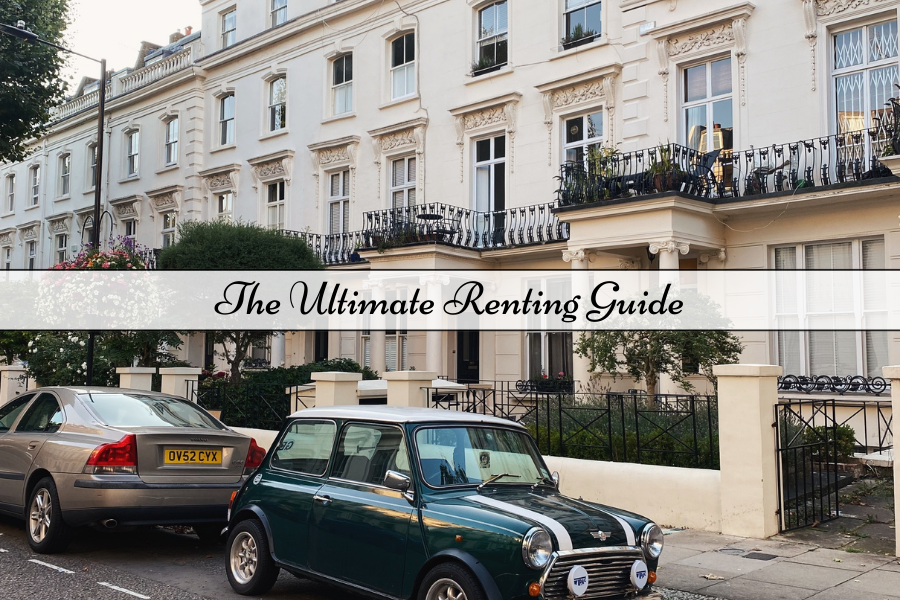
If you’re renting for the first time, there are several things you’ll want to watch out for. We’ll go through the exact process you need to follow with top tips for each step. In this renting guide, we'll cover 12 steps:
1.) Deciding to rent
2.) Get your documents ready
3.) Finding a property
4.) Viewing a property
5.) Making an offer and negotiating
6.) Offer accepted and contract shared
7.) Sign Contract and Pay The Deposit
8.) Get Ready To Move In
9.) Moving Day
10.) During The Tenancy
11.) Tenancy coming to an end
12.) Moving Out
This post is all about the ultimate step-by-step renting guide for beginners.
STEP 1 Renting Guide: Deciding To Rent

The first step is deciding if you should actually rent. You can view our post on the pros and cons of renting to help you decide.
Make sure your finances are in order and you know exactly how much rent you can afford per month. Remember, it’s not just the rent you’ll have to pay each month, but also other expenses, such as utilities and council tax. The cost of renting includes the following:
- Gas
- Electric
- Water
- Landline
- Internet access
- TV license
- Council tax
- Renters/contents insurance which will protect your belongings and cover you against accidental damage
- Monthly rent payments
Sometimes the utility bills are included within the rent but not always, so you'll need to check this. You’ll also need to pay a deposit (usually equivalent to 4 weeks’ rent) and one month’s rent upfront, so make sure you can afford it!
STEP 2 Renting Guide: Get Your Documents Ready

You will need to produce various documents for the estate agent when finding a place to rent. These include:
- A form of photo ID. This includes a passport or full driver’s licence
- A utility bill or bank statement to prove your current address
- References from your previous landlord/or a character reference from someone you know, such as an employer or friend etc. If you don’t have references at all, the landlord may ask you to pay a few months’ rent in advance
- A credit reference check will also be run against your name when you contact the estate agent (see below)
It is best you get these ready from the start so you don't hold the process up.
STEP 3 Renting Guide: Finding A Property
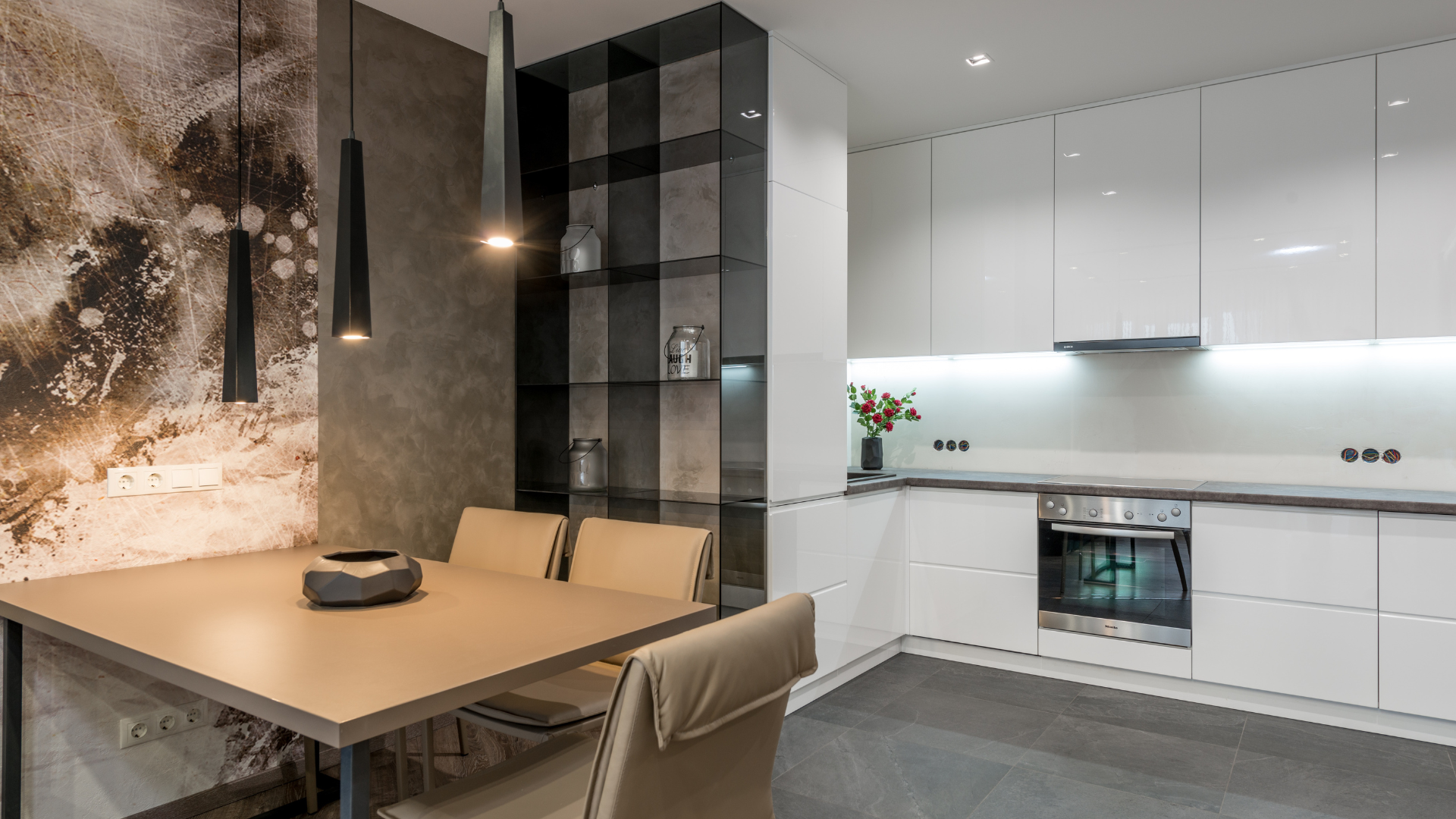
Start looking for houses/flats to rent on various website, such as Rightmove, Zoopla, and SpareRoom (if you’re wanting to share).
Know your requirements when searching
Have a clear idea in your mind of the property you want to rent, as some may have restrictions. You’ll want to know:
- How long you want to rent for (some properties will only rent short-term)
- Whether you want a furnished or unfurnished property
- Smoking or non-smoking property
- Whether the landlord allows pets
- Whether the rent includes the utility bills. Usually, they won’t unless you are renting out a serviced property
- Is the area near a train/underground station?
TOP TIP: If you’re renting a flat pay extra attention to what floor it’s on. Top floor flats can become ice cold in winter and unbearably hot in summer if there is poor insulation.
On the other hand, ground floor flats are more likely to face leaks/damps due to water issues trickling down from flats above. They are also much easier to break into, so if security is a top concern, you may want to choose a flat higher up.
Contact the estate agent
Contact the estate agent using the details listed next to the property in order to book a house viewing once you find some properties that you like. Remember, you don’t need to pay the estate agent anything to view the property.
Top tips when using an estate agent:
Stating your preferences
- Be super clear with the estate agent on your requirements and put these in writing
via email. What tends to happen is once you give the estate agent an idea of the property you’re looking for, they’ll send you a bunch of similar properties in case you’re interested in viewing them too.
However, if you say vaguely in passing that you don’t really want to rent a ground floor flat, they may still try and tempt you to visit these flats. This will just be a waste of your time if you’ve already made up your mind that you don’t want one. That’s why it’s best to be clear from the beginning. - Check online yourself that the property the estate agent is asking you to visit actually meets your own requirements. You can also view the property from the outside first to save time. If the road is unsuitable, very noisy etc, then you might want to find another area straight away.
Don't play all your cards at once
The estate agent will ask you what your budget is for rent. Whilst they won’t recommend this, it’s always best to be slightly vague about your maximum budget. The reason for this is the estate agent acts as the go-between for you and the landlord (the person renting out their property).
If you like the property and want to negotiate on price, you can be sure that the estate agent will let the landlord know your maximum budget. The landlord may have been willing to negotiate and drop to an even lower price, but now he knows your maximum budget, he’ll hold out until you offer up all of that !
STEP 4 Renting Guide: Viewing A Property

It’s an absolute must to go visit the property rather than just agreeing to rent straight away. Pictures online can be very deceptive! If you’re also sharing with strangers, make sure you go and meet them first before agreeing to move in with them. This will save you a whole lot of hassle further down the line.
Check out our ultimate house viewing checklist for a list of questions you can ask. Note, this checklist is currently for buying a property, so you won’t need to go as detailed if you’re just renting.
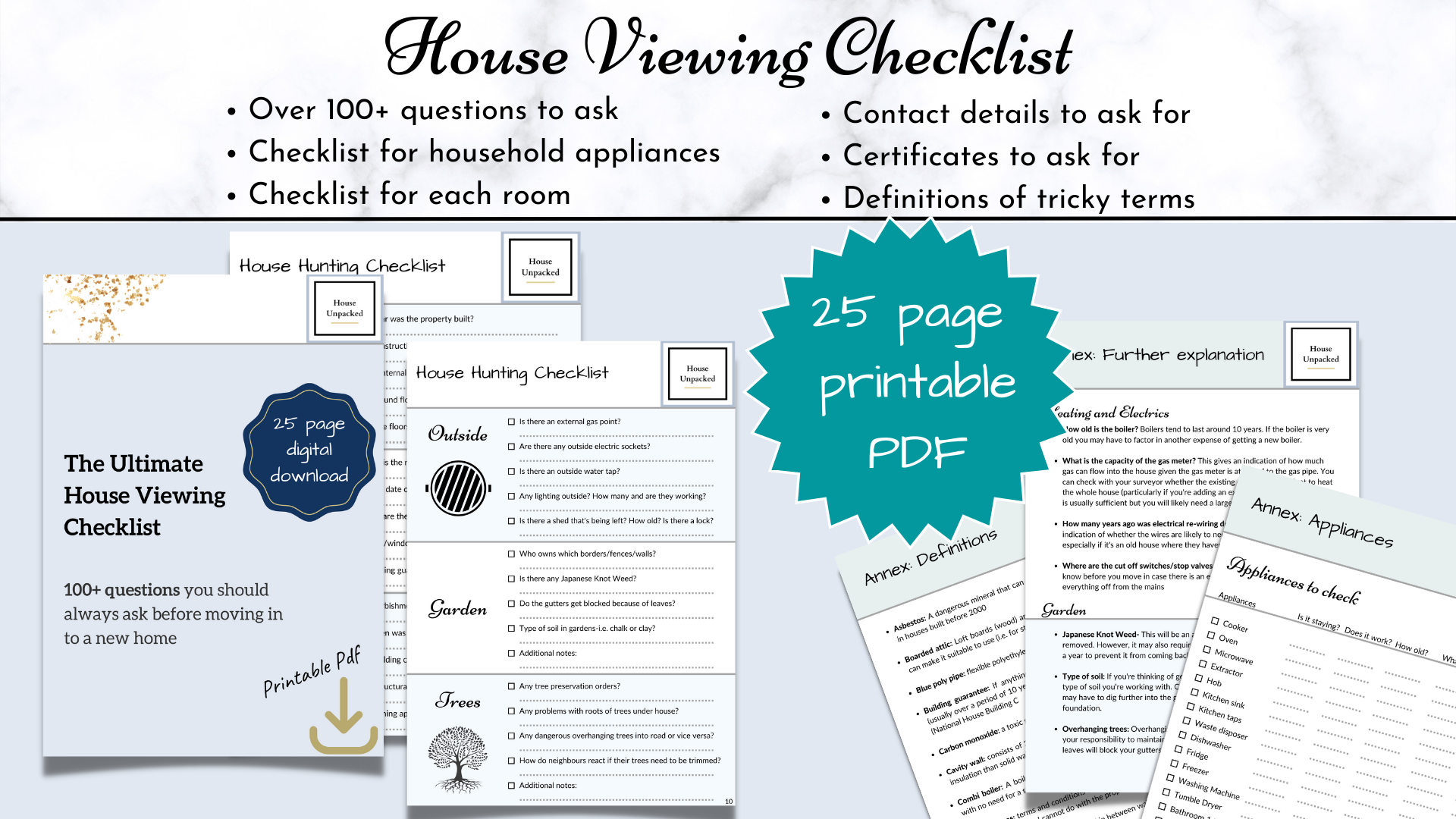
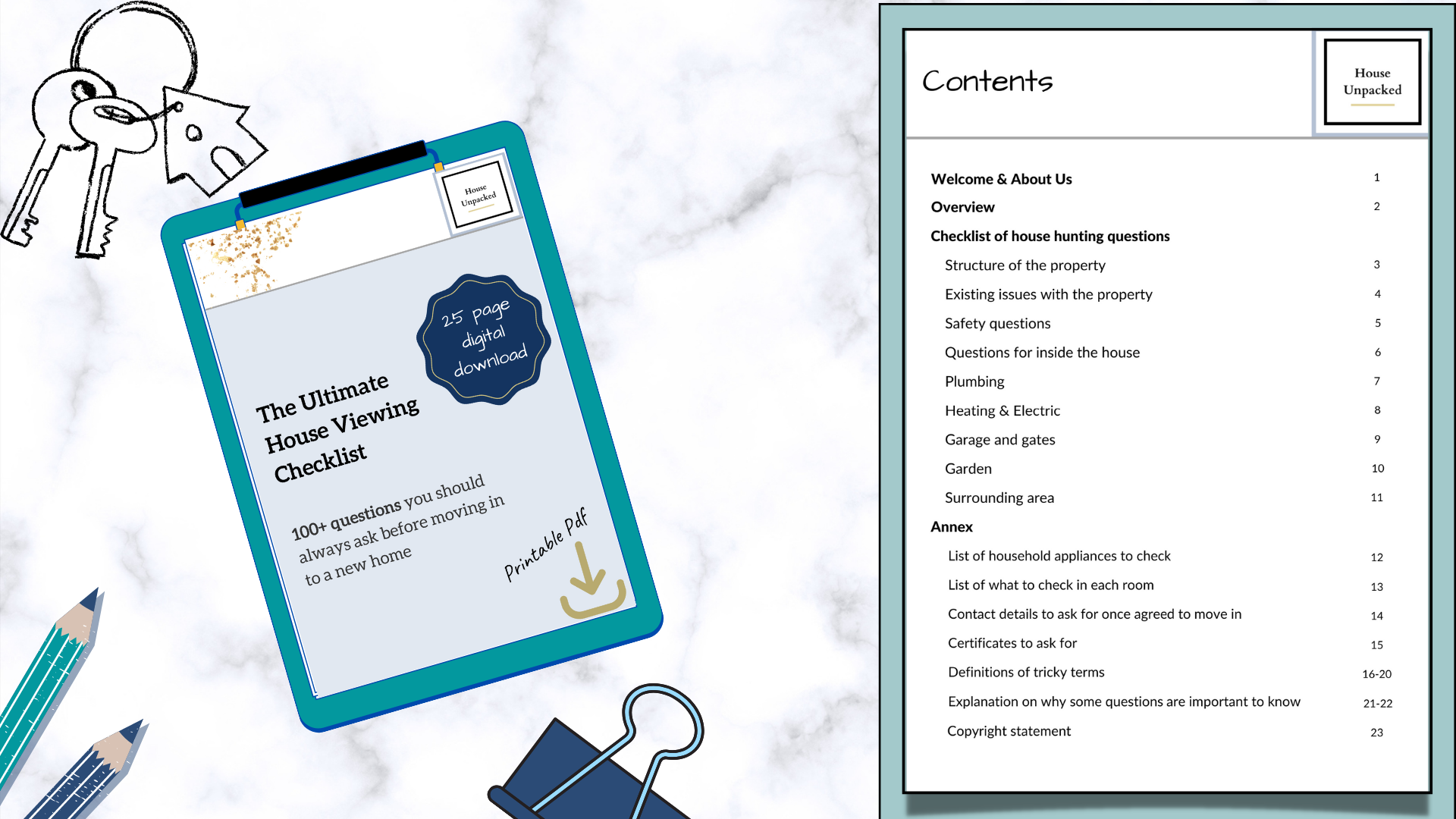
The main questions you should ask when renting are:
- Safety questions- check no mould/damp/pests (i.e. rats/mouse traps etc). Have the carbon monoxide detector and fire alarm been installed? Are they in date and recently checked?
- Security questions- are the locks secure/is the area safe?
- Are all the utilities working (water/plumbing, gas/heating, electrics)? How much do they usually cost?
- Is there good internet connection?
- Do all the lights work?
- Any issues with noise or the neighbours?
- If it’s a furnished property, will all the furniture be staying/including cutlery etc? Get confirmation of this in writing
- Is there a washing machine and dryer?
- Is there a parking space?
- Does the property look well maintained?
- Ask the estate agent/previous tenants if there have been any complaints about the landlord before/any issues in the property previously
TOP TIP
Checking the condition of the apartment and whether it's in good working order will give you an idea of how quickly or slowly the landlord responds to fixing issues.
If the property is not kept in good order, then go find another property ! It does not matter how desperate you are to move. You will just be setting yourself up for a miserable time if you have an unresponsive landlord.
There will always be something more suitable on the market even if it means adjusting your expectations and having to compromise. It's much better to get a well maintained property rather than dealing with a difficult landlord.
STEP 5 Renting Guide: Make An Offer And Negotiate

You’ve viewed a few properties and you’ve found the house you like. Now it’s time to put in an offer via your estate agent, who passes this onto the landlord.
TOP TIPS FOR NEGOTIATING
Remember, you don’t have to offer the full asking price. You can and should negotiate. That’s why you should always have a thorough look at the property and ask questions before making an offer. If there is something slightly wrong with the flat, you can use this to justify why you’re putting in a lower offer. When negotiating you should also:
- Have a look at similar properties in the same area to see how much they’re being rented out for
- Ask the estate agent how long the house has been on the market. The longer it’s been on, the higher the chance of the landlord accepting a lower offer
- Let the estate agent know how quickly you can move. Sometimes the quicker you can move in, the landlord may be more willing to negotiate, as they don't want to leave their property empty for long periods of time. This will also depend on whether there is somebody already living there at the moment (as you'll have to wait for them to move out first)
- If you're willing to rent for a longer period of time (i.e. 1+ years). The landlord may be willing to offer lower rent for a longer time commitment
- Whether you are willing to pay rent upfront in advance. Sometimes if you pay 6 months in advance you can negotiate the rent down further
The main thing the landlord wants is a good tenant who will pay the rent on time and look after their property.
STEP 6 Renting Guide: Offer Accepted and Contract Shared
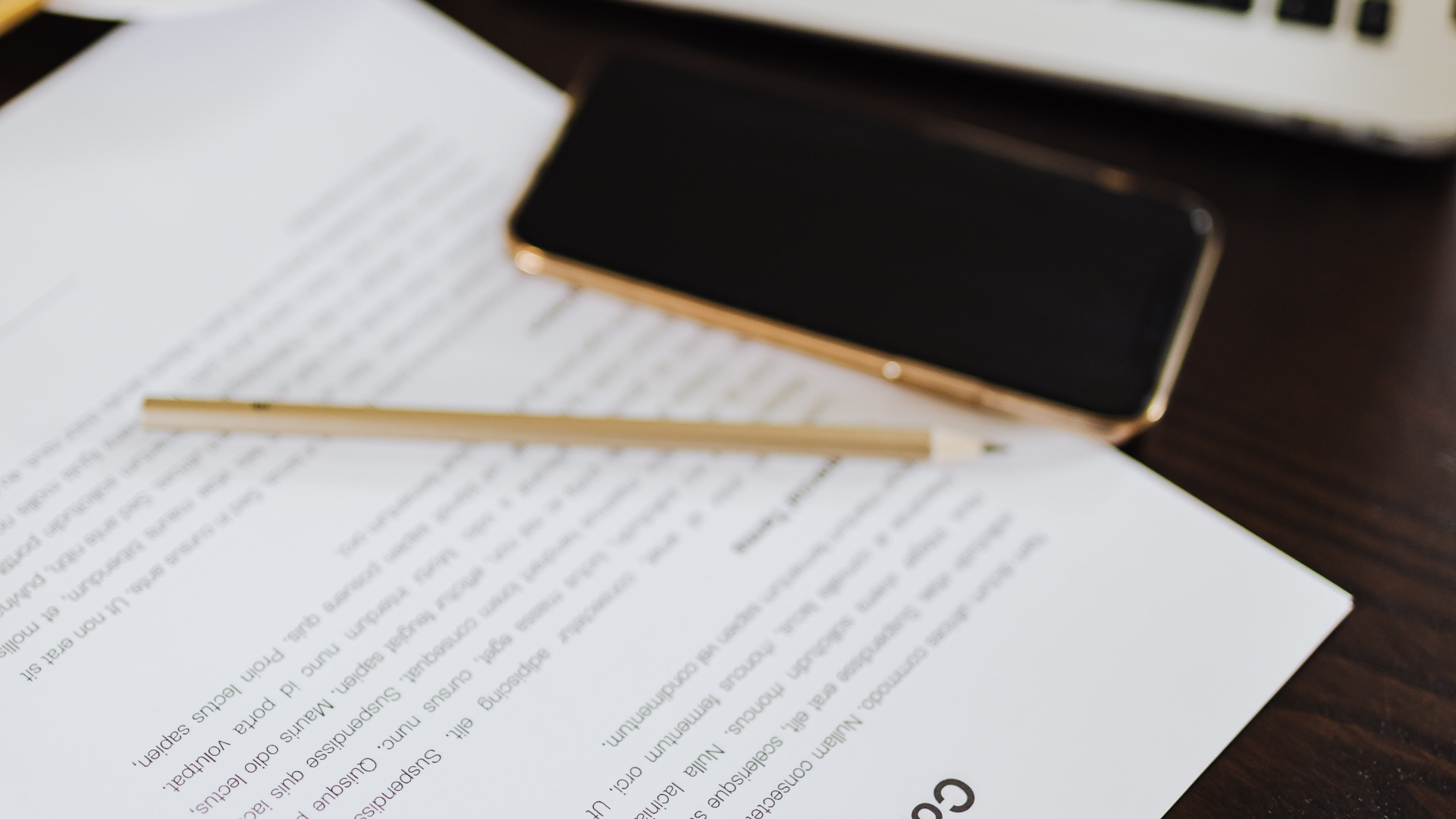
Once your offer is accepted, the estate agent sends you a draft contract to review. It’s extremely important you read this carefully and don’t rush to sign it.
Main things to check in the contract:
- The address is correct
- The monthly rent payment is correct
- The deposit amount is stated correctly and will be held by the Tenancy Deposit Scheme
- The start and end date of the contract is correct
- What bills are included, if any
- It states whether pets are allowed (if needed)
- It states whether smoking is allowed (if needed)
- It states if the place is furnished
- That the property will be cleaned before you move in (the landlord pays for this)
- When your contract is coming to an end, how much notice the landlord has to give you before moving out (this should be 2 months)
- Check there is a break clause in the contract. This is a set period of time (i.e 6 months) after which you can give notice that you would like to leave the property
TOP TIPS
- Remember the contact is an agreement between two parties. Both you and the landlord need to be happy and protect your interests. You can agree to whatever you like providing it is legal and agreeable to the other side
- If there is any clause that is missing you can ask for this to be put in. Equally if there is any clause that is unacceptable to you then you can ask to have that clause removed
- Sometimes it can state in the contract how much the landlord can raise the rent at the end of the first term (usually a year). This can be helpful as otherwise at the end of the term, the landlord can be unreasonable and raise the rent too high
- If you are renting for a long period (i.e 3 years) the rent can be fixed for the duration but again this is all negotiable and depends on what is acceptable to both parties
STEP 7 Renting Guide: Sign Contract and Pay the Deposit

Once you're happy with the contract, sign it and pay:
(1) A deposit (usually 4 weeks rent. A maximum of 5 weeks rent is the legal limit).
This is held as part of the Tenancy Deposit Scheme, TDS (an independent organisation that guarantees your deposit). Sometimes the landlord holds the money in their account. However, you will get a certificate from the TDS saying you have paid the deposit and are entitled to it back at the end of the tenancy period minus any cost for damage you've caused.
(2) One month’s rent which is paid to the landlord
Step 8 Renting Guide: Get Ready To Move In

Getting information from the landlord
Before you move into the property, make sure you have the landlord’s contact details and ask him/her for the following:
- Who are the utility suppliers and can you change them if necessary?
- Are there any instruction manuals for the appliances?
- Are there any spare keys to the doors/side gates? If not, you will need to ask for the landlord’s permission to make a cut of the key if you’d like a spare one. Make sure to get this permission in writing
- Any keypad codes for the gates? Any gate fobs?
- You should also have a copy of the gas and electric safety certificates
Start informing people of your new address
Once you know your move in date, start informing people of your new address. Check out our ultimate change of address checklist (in priority order !) to see who you need to inform.
Call the Internet Provider and set up your TV License
Call the internet provider you’d like to use at least 3 weeks before you move in to set up your account/make sure the internet will be in working order by the time you arrive.
Sometimes they may need to send out an engineer, so make sure this is all sorted by the time you get there. However, keep in mind this may not always be possible given there could be some existing tenants already living there.
Remember, you don’t always have to stick with the same utility providers that the landlord is currently using. You can ask the landlord if you'd like to switch if you find a better deal. You’ll then simply need to call the new suppliers that you would like to use to set up an account.
It’s also worth getting the TV license all sorted before you move in. This can be done instantaneously on the TV licensing website here.
Get Contents Insurance For Your Belongings
Whilst you won’t be responsible for the building itself when renting, make sure you protect your belongings in case they get damaged or stolen. Sort out your contents insurance a couple days before you move in and let them know to start the insurance policy on your moving in date.
Inventory
Before moving day, you will receive an inventory which states everything that is in the property (belonging to the landlord) and if there is any existing damage to the property. It’s extremely important you check this thoroughly, which you’ll do once you move into the property (see below).
STEP 9 Renting Guide: Moving Day
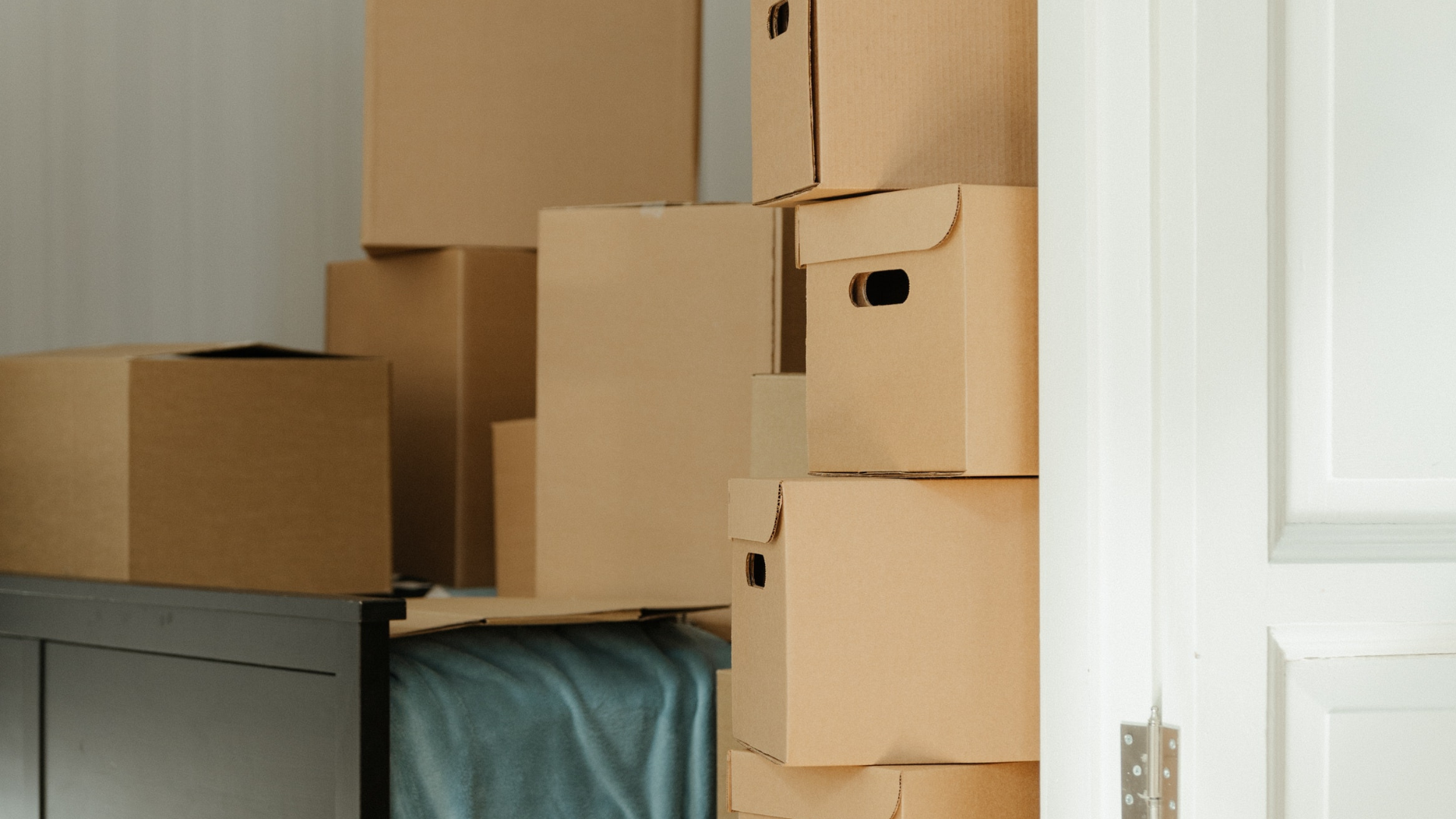
On moving day:
- The estate agent gives you the keys
- You must take pictures of the gas, electric and water meter readings. Submit these to the utility supplies to avoid being overcharged for any usage before you moved in
- Do a thorough check of the inventory (see above)
Within the first week, you may notice that a few extra things in the property are loose/damaged. As soon as you notice this, make sure to take a photo as evidence, email the estate agent, and ask them to issue a new inventory with this included.
This is really important to do ! Once your contract ends, you will receive your full deposit back if there is no damage to the property. However, if there was existing damage to the property before you moved in, it was missed off the inventory, and you didn’t report/record it, the landlord will think that you caused the damage.
You usually have 7 days to check the inventory and confirm it's all correct before you sign it. Keep a copy of this document, as it will be extremely important when you move out.
If you find something after a couple weeks, you should still photograph and report it via email straight away and then you have covered yourself.
STEP 10 Renting Guide: During Tenancy
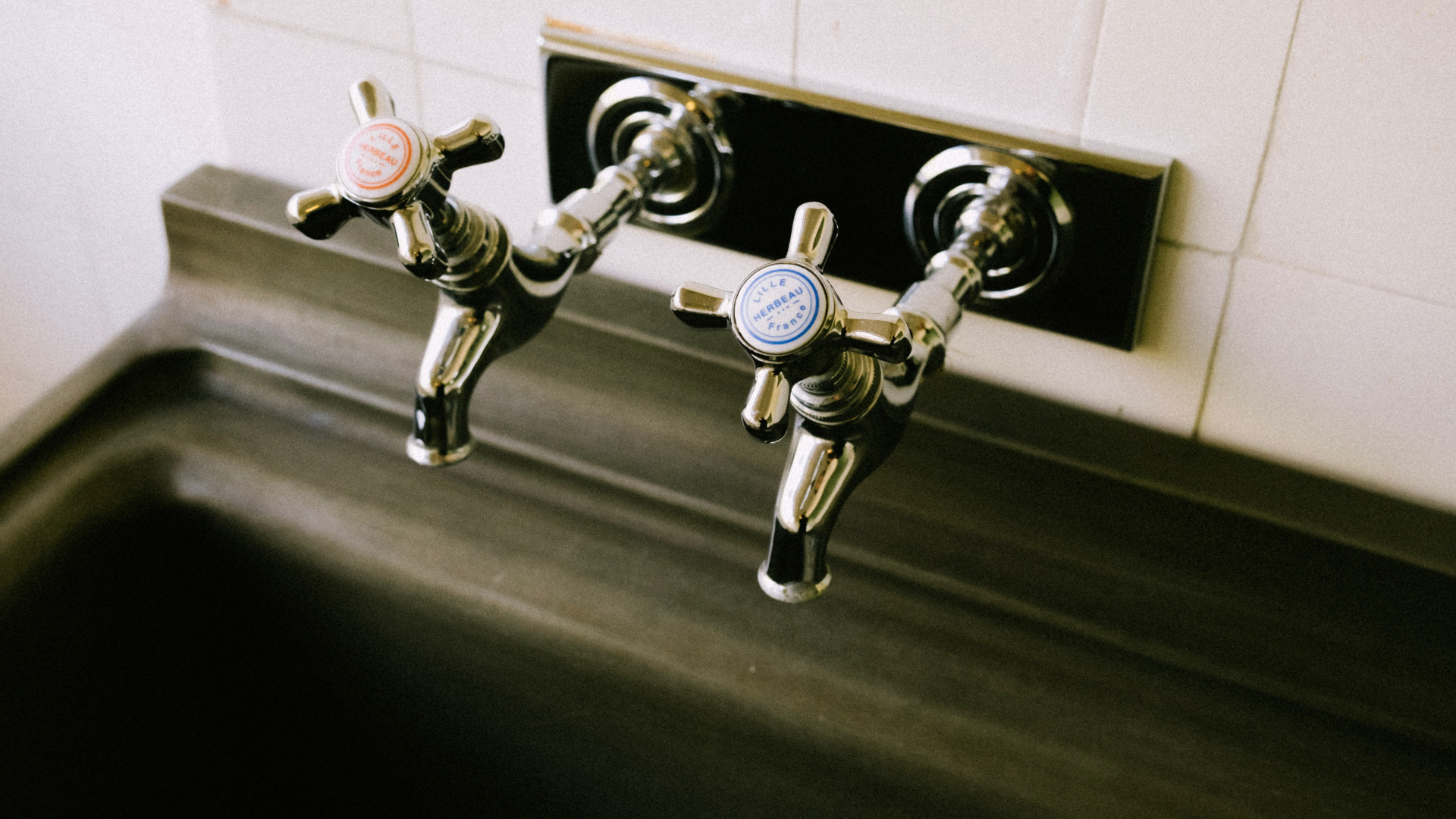
Looking after the property
During your tenancy, make sure you:
- Look after the property and keep it clean. Don’t let it get mould or pest infested due to bad habits
- Fix any light bulbs that run out
- Pay your bills and rent on time
- Check with your landlord if you’re planning to have somebody stay with you for extended periods of time (i.e more than 1 month)
- Report any structural issues to the landlord as soon as they occur E.g plumbing, leaks, door handle breaking etc. Your landlord is responsible for fixing this, not you
Know Your Rights
- The landlord cannot just randomly show up to your house. They must give at least 24 hours notice and have a reason for doing so
- The landlord cannot kick you out without notice
- The landlord cannot suddenly increase your rent. It is very important to check in the contract the time period for which you'll be paying the agreed rent
If Issues Pop Up
Sometimes the estate agent is retained by the landlord for a monthly fee and will deal with any problems as they arise. You'll just need to inform the estate agent there's an issue.
If you are dealing directly with the landlord then you will have to contact them explaining the issue. Remember to:
- Put things in writing, attach a photo, explain the problem clearly, and that you want it fixed in a timely manner. It's an absolute must to keep a paper trail.
- If the landlord will not fix the problem and you have given him ample time to fix it, you are perfectly within your right to inform the landlord you are getting the problem fixed and will deduct the amount from next month's rent. The landlord will not like this and this will usually prompt them to act.
- If the landlord doesn't do anything about it, get the work done and deduct it from the rent
- If there is an issue with damp/pests or some big problem, you can usually ask the local authority or citizens advice about your rights (especially if it's affecting your health). If necessary, the council may write to the landlord to fix the problem
- By law the property should be fit for human habitation and if it isn’t, the council will get involved irrespective of whether it's a council property or not
STEP 11 Renting Guide: Tenancy Coming To An End

Once your tenancy is coming to an end, the estate agent will contact you around 2 months before your end date to either let you know:
(1) You can stay but the landlord wants to up the price
In this case, you can try and negotiate again with the landlord. If you’ve been a good tenant and paid your rent on time, you may be able to convince the landlord to keep you on for the same rent. If the landlord puts the price up too much, you may unfortunately have no choice but to move out.
(2) The landlord is happy to continue on a month-to-month basis
This means you can continue staying in the property each month after your contract ends. However, the landlord usually only has to give you 2 months notice if he wants you to move out. If you decide to move out, you will only have to give the landlord one month's notice.
This will usually be stated in your contract. However, it's always worthwhile confirming with the landlord in writing that (a) the month to month rent means you will continue paying the same amount of rent (b) the notice period he will give you before asking you to leave.
(3) You have to move out once the contract ends
If you're not staying (for example if the landlord wants to sell), there may be house viewings during the last couple months you're living there. Try and be as accommodating as possible.
You can give your preferences for house viewing times to the estate agent but don't forget your rights! You need to be given at least 24 hours notice before somebody rocks up to your house.
STEP 12 Renting Guide: Moving Out

Inventory
The inventory will be checked and discussed with you when you move out. Usually the landlord/estate agent arranges a suitable date and time to go round the property to check everything is in order. This could be on moving out day or a couple days before or after.
If there are any light bulbs missing/not working you should replace these yourself. If it is marked on the inventory as missing/not working, the estate agent/landlord can charge £50.00 for a light bulb. This includes the cost for the bulb plus sending out the maintenance chap to fix it.
Be warned! Fix any small things yourself. The replacement costs includes a labour cost which can be unreasonably expensive!
Make sure you remove all your belongings too and leave the property clean and in good condition.
On the day your contract ends:
- Take pictures of the utility meter readings to give to your utility suppliers for a final bill to avoid getting overcharged. The landlord and you should both have copies of these and both usually inform the utility supplier
- Hand over your keys to either the estate agent or landlord (whichever has been agreed). Make sure you hand back the correct number of keys as they will check all of them are there
Getting your deposit back
The TDS certificate you received at the beginning of your tenancy lists the exact procedure of how the deposit is returned including times for getting your deposit back.
- You usually receive your deposit back in 4 weeks from moving out. This can be quicker if there are no issues or longer if there is an issue
- If there is an issue then there will be some negotiation and clarification between you and the landlord to agree on the damage and the amount
- Once the amount is agreed, this will be deducted from your deposit before it is returned to you. However, you will both have to sign and agree to this
- If there is a real issue and you can’t agree, then the process will be followed as outlined in the Tenancy Agreement terms and conditions. If necessary, an independent person will make a decision. However, this can be a lengthy process (several months).
If you want/need your deposit back then you have to take all of this delay into account. If it's a tiny amount of money involved and you caused the damage, it may be easier to just accept the situation, take a smaller deposit back and move on with your life.
And that's all ! You've reached the end of your renting guide 🙂
This post was all about the ultimate step-by-step renting guide for beginners.
If you found this helpful, you can view our upcoming content on our coming soon page to see what's next !

Comments